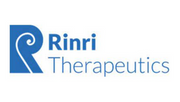What are cell and gene therapies?
Cell and gene therapies are transformative medicines whose full potential is only just beginning to emerge. They involve extracting cells, protein or genetic material (DNA) from the patient (or a donor), and altering them to provide a highly personalised therapy, which is re-introduced to the patient. Cell and gene therapies may offer longer-lasting effects than traditional medicines. They have the potential to address complex diseases, such as motor neurone disease, and many rare disorders for which there are no effective treatments.
The BIA has a number of members working in the cell and gene therapy space, and we engage with these companies to support the continued growth of the sector and ensure that these treatments can reach patients.
Recent activity in cell and gene therapy
Cell and Gene Therapy Advisory Committee (CGTAC)
The Cell and Gene Therapy Advisory Committee (CGTAC) works to highlight the value of cell and gene therapies to patients and the wider UK economy and to promote the UK’s global role in delivering these transformative treatments and the innovative science behind them. It also engages in specific topics to support the development of the cell and gene therapy sector in the UK, including addressing the skills gap, supporting the translation of research and ensuring sustainable patient access to treatments.
The committee brings together a large proportion of the UK’s regenerative medicine industry, including biotechs, pharma, service providers, law firms and venture funds, as well as key organisations including the Cell and Gene Therapy Catapult and Innovate UK.




























